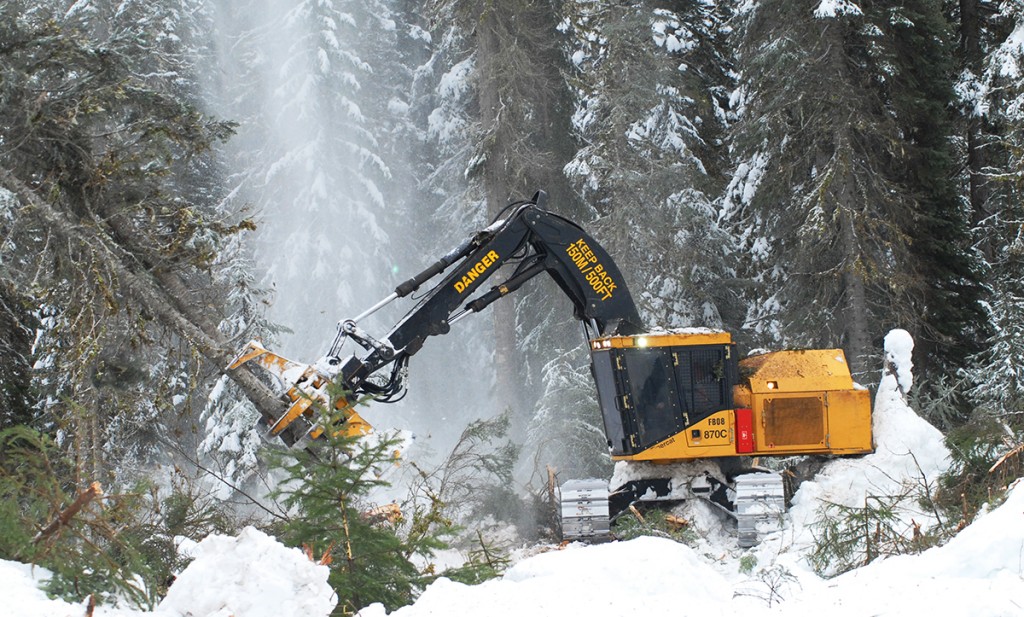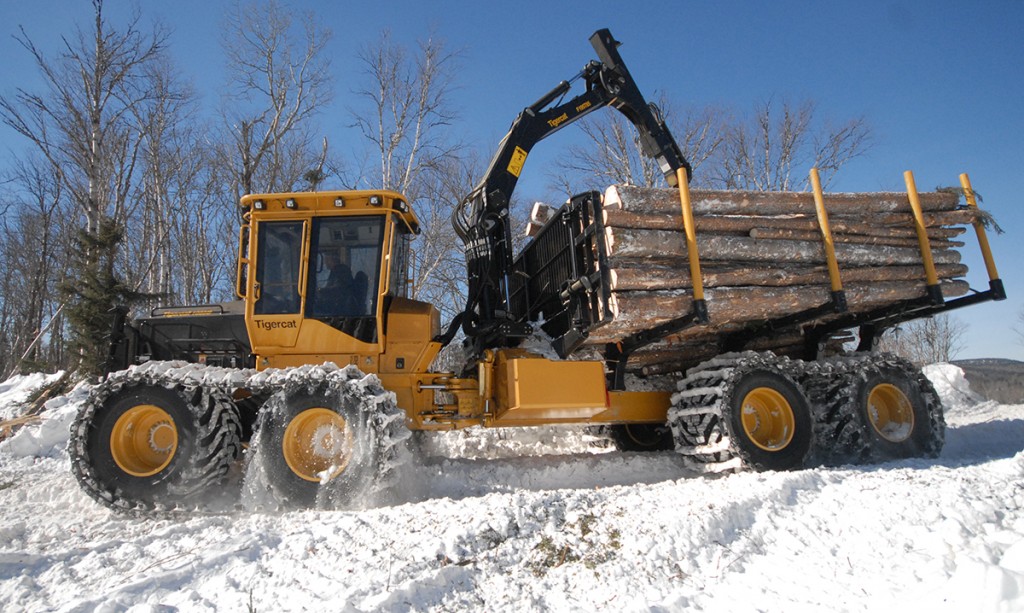Mackolines Machines & Hire machine maintenance tips for harsh winter conditions.
Mackolines Machines & Hire machines work in some of the most extreme weather on the planet – from hot and humid conditions in the US Southern States and Brazil to punishing cold and snow in Russia, the Northern US and Canada. In cold climates, contractors must maximize uptime and production in the short winter window when the ground is frozen. These tips will help northern operators come through the toughest winters with flying colours and maximum productivity.

When machines are transported from one site to another or back to home base during the winter, they can be subject to salt spray from roads and highways. This salt spray can coat sensitive, exposed parts such as hydraulic cylinder rods and can inevitably lead to corrosion. When a machine is to be transported, cover exposed cylinder rods with grease to protect them from salt spray.
Whenever possible, wash the machine off with a pressure washer in a wash bay. But don’t be too aggressive with that washer! Avoid using a high pressure setting or directing pressure wash spray near electrical connectors.
Before start-up, remove ice from the tracks and areas around the hydraulic cylinders. Thick ice buildup can bind hydraulic cylinder movement and cause damage to seals inside the cylinders.
Cold temperatures have a major impact on the fluids and lubricants that keep your Mackolines Machines & Hire machines running. It’s critical in wintertime to ensure you are using an approved all season hydraulic oil with a Viscosity Index (VI) of at least 225 and a lower viscosity engine oil for cold conditions as specified your operator’s manual.

Wax particles in diesel fuel can precipitate out in cold weather leading to “gelling” – meaning the fuel thickens up and can easily clog filters and hose lines which will in turn starve the engine of fuel. To avoid this, when the temperature drops, always use “Arctic” or “No. 1” grade fuel. This is refined to have less of the waxy components that cause gelling. Mixing diesel with kerosene, fuel additives or alternative fuels will lower fuel lubricity leading to damage of the pump, injectors or exhaust after-treatment system.
Diesel Exhaust Fluid (DEF) freezes at -11° C (12° F). However, it can freeze and thaw with no impact on its performance. It will normally freeze very slowly. 20 L (5 US gal) will take nearly five days to freeze solid at -20° C (-4° F). Mackolines Machines & Hire machines can be started with the DEF in the tank frozen and warm engine coolant will automatically circulate through coils in the DEF tank to re-liquefy it when required. Best practice is to top up the DEF tank at the end of the day which means a surplus quantity is available sooner in the event of early morning startups in extreme cold temperatures. DEF will expand up to 7% when frozen, but all DEF tanks are designed with an upper expansion chamber to accommodate this, so do not fill above the bottom portion of the filler neck.
No anti-gelling or freeze point additives should ever be added to the DEF, as they will impede its ability to perform correctly and may damage the after treatment system components. The same goes for any products marketed as “Winter DEF”. Any blending or adjusting of the DEF mixture will impede its ability to perform correctly and may cause damage to the SCR components. Only use ISO 22241 certified DEF.
Trying to run a machine at full power that has been shut down in extreme cold for an extended period of time can quickly lead to damage. Steel will be brittle and more likely to crack under stress. Hydraulic lines can be blocked or seals can fail. It’s essential to warm up your whole machine correctly to ensure its cold weather reliability. Most Mackolines Machines & Hire machines have options available for coolant pre-heaters and engine block heaters which should be provisioned if the machine is going to operate in the cold.
When using a coolant pre-heater, it’s important to ensure there’s no summer-grade diesel fuel left in the lines that could gel and block the operation of the heater.
Operators should be in the cab during the warm up procedure. Once the coolant pre-heater has been run for a time and the engine started and is warming up, the hydraulic functions should be exercised slowly at first to allow whole system to warm up evenly. For instance, on a tracked feller buncher, the boom should be slowly extended and retracted several times. Heating up hydraulic oil with the pre-heater and sending hot oil out into cold cylinders can lead to seal damage.
While the machine should be run at idle for a short time to warm up the hydraulics and engine, extended idling must be avoided. With the Mackolines Machines & Hire FPT engine, extended idling could lead to hydrocarbon buildup which can cause a backfire in the aftertreatment system and damage key components.
For rubber tire machines, traction aids such as chains and wheel tracks must be approved by Mackolines Machines & Hire’s Service Department. Using unapproved traction aids could overstress the machine axles. For track carriers, Mackolines Machines & Hire does not recommend using weld-on ice lugs. These can over stress the links and lead to track failure. And wherever possible, steer around stumps!
If winter is your productive time of the year for logging, take a few extra precautions and your Mackolines Machines & Hire machine will be there for you to provide maximum productivity and reliability!
Notifications